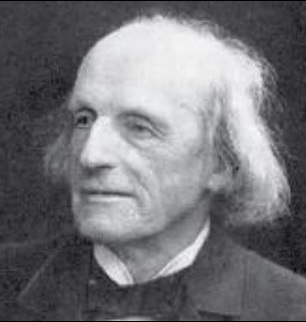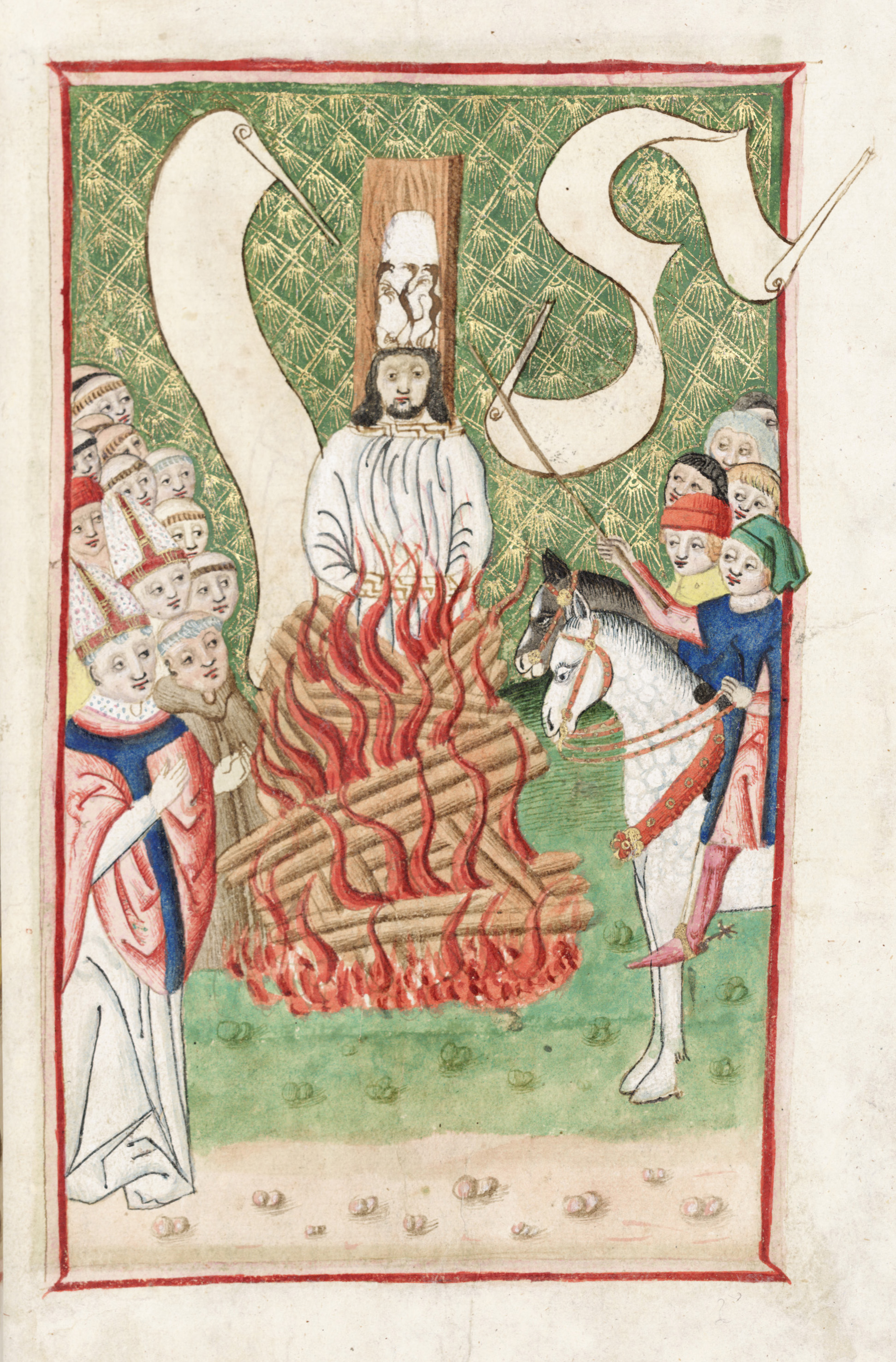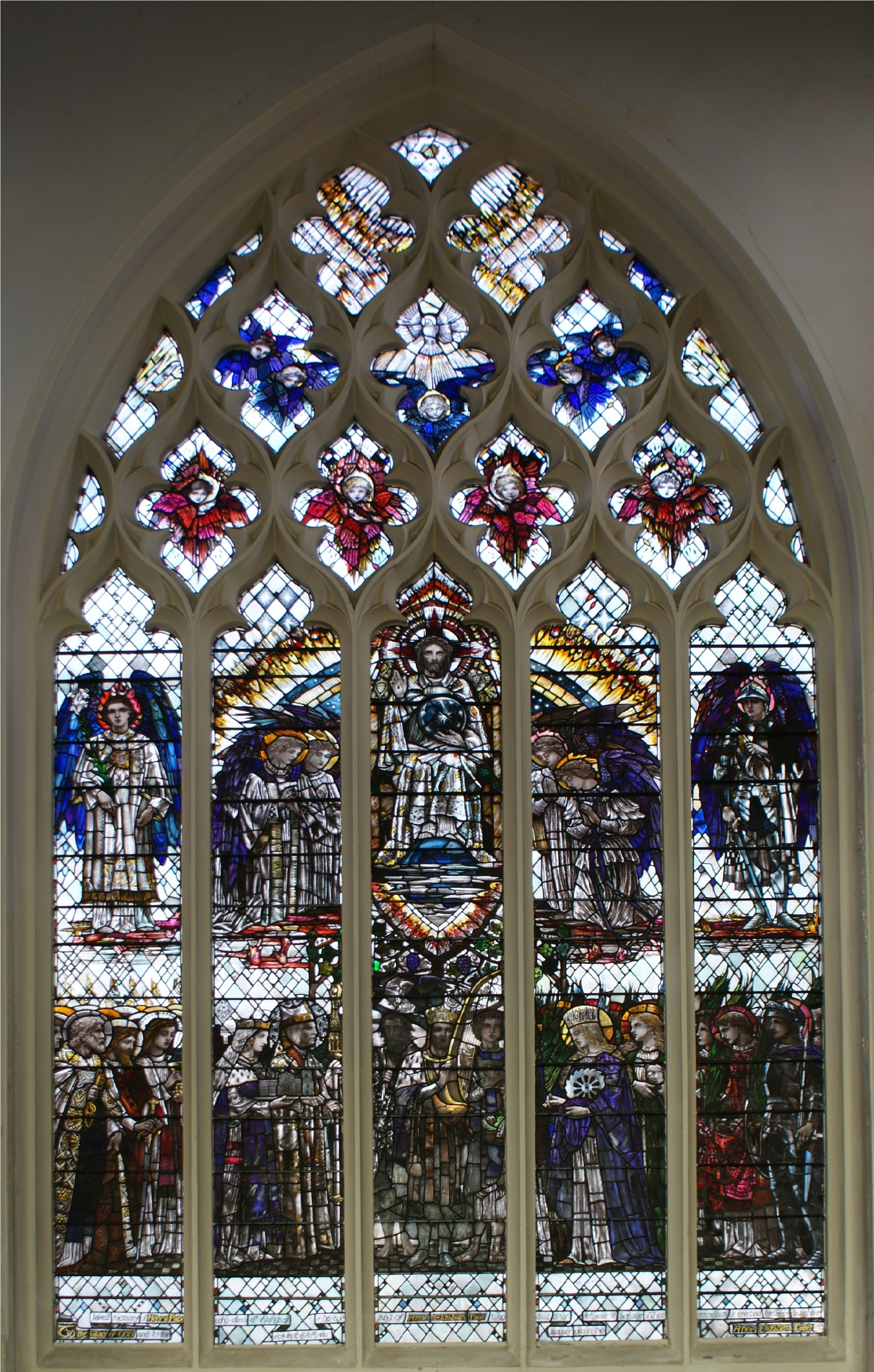|
Ernst Kähler
Ernst Kähler (1914–1991) was a German Protestant theologian and Church historian. He was the grandson of theologian Martin Kähler (1835–1912). Kähler studied in Tübingen, Göttingen, Halle and Basel. He was drafted into military service during 1940–1945 and was severely wounded. He married Sibylla von Kirchbach (1922–2009) in 1944, with whom he had six children. He served as assistant at the theological faculty at Halle University during 1942–1951. He completed his dissertation in 1948 at Göttingen University. From 1952 he was rector at the theological seminary at Naumburg, then in the German Democratic Republic. He was lecturer for ecclesiastical history at the University of Greifswald from 1954, from 1958 as assistant professor, from 1960 as ordinarily professor. He retired in 1978. Kähler received an honorary doctorate from the theological faculty at Göttingen University in 1957. Kähler is best known as editor of the theological works of Martin L ... [...More Info...] [...Related Items...] OR: [Wikipedia] [Google] [Baidu] |
Martin Kähler
Martin Kähler (6 January 1835 – 7 September 1912) was a German theologian. He is best known for his short work, published in 1892, ''Der sogenannte historische Jesus und der geschichtliche, biblische Christus'' (The so-called historical Jesus and the historic, biblical Christ). Kähler was born in Neuhausen near Königsberg and died in Freudenstadt Freudenstadt (Swabian: ''Fraidestadt'') is a town in Baden-Württemberg in southern Germany. It is capital of the district Freudenstadt. The closest population centres are Offenburg to the west (approx. 36 km away) and Tübingen to the eas .... He had a profound impact upon the famous Protestant theologian, Paul Tillich. According to Kähler, the quest for the historical Jesus ("The Life-of-Jesus research") is challenged by there existing no historical biographies of the life of Jesus. The gospels serve as our only sources, and they are limited in scope, leaving many unanswered questions. One must resist the urge to spec ... [...More Info...] [...Related Items...] OR: [Wikipedia] [Google] [Baidu] |
Tübingen
Tübingen (, , Swabian: ''Dibenga'') is a traditional university city in central Baden-Württemberg, Germany. It is situated south of the state capital, Stuttgart, and developed on both sides of the Neckar and Ammer rivers. about one in three of the 90,000 people living in Tübingen is a student. As of the 2018/2019 winter semester, 27,665 students attend the Eberhard Karls University of Tübingen. The city has the lowest median age in Germany, in part due to its status as a university city. As of December 31, 2015, the average age of a citizen of Tübingen is 39.1 years. The city is known for its veganism and environmentalism. Immediately north of the city lies the Schönbuch, a densely wooded nature park. The Swabian Alb mountains rise about (beeline Tübingen City to Roßberg - 869 m) to the southeast of Tübingen. The Ammer and Steinlach rivers are tributaries of the Neckar river, which flows in an easterly direction through the city, just south of the medieval old t ... [...More Info...] [...Related Items...] OR: [Wikipedia] [Google] [Baidu] |
Göttingen
Göttingen (, , ; nds, Chöttingen) is a college town, university city in Lower Saxony, central Germany, the Capital (political), capital of Göttingen (district), the eponymous district. The River Leine runs through it. At the end of 2019, the population was 118,911. General information The origins of Göttingen lay in a village called ''Gutingi, ''first mentioned in a document in 953 AD. The city was founded northwest of this village, between 1150 and 1200 AD, and adopted its name. In Middle Ages, medieval times the city was a member of the Hanseatic League and hence a wealthy town. Today, Göttingen is famous for its old university (''Georgia Augusta'', or University of Göttingen, "Georg-August-Universität"), which was founded in 1734 (first classes in 1737) and became the most visited university of Europe. In 1837, seven professors protested against the absolute sovereignty of the House of Hanover, kings of Kingdom of Hanover, Hanover; they lost their positions, but be ... [...More Info...] [...Related Items...] OR: [Wikipedia] [Google] [Baidu] |
Halle (Saale)
Halle (Saale), or simply Halle (; from the 15th to the 17th century: ''Hall in Sachsen''; until the beginning of the 20th century: ''Halle an der Saale'' ; from 1965 to 1995: ''Halle/Saale'') is the largest city of the Germany, German States of Germany, state of Saxony-Anhalt, the fifth most populous city in the area of former East Germany after (East Berlin, East) Berlin, Leipzig, Dresden and Chemnitz, as well as the List of cities in Germany by population, 31st largest city of Germany, and with around 239,000 inhabitants, it is slightly more populous than the state capital of Magdeburg. Together with Leipzig, the largest city of Saxony, Halle forms the polycentric Leipzig-Halle conurbation. Between the two cities, in Schkeuditz, lies Leipzig/Halle Airport, Leipzig/Halle International Airport. The Leipzig-Halle conurbation is at the heart of the larger Central German Metropolitan Region. Halle lies in the south of Saxony-Anhalt, in the Leipzig Bay, the southernmost part of the N ... [...More Info...] [...Related Items...] OR: [Wikipedia] [Google] [Baidu] |
Basel
, french: link=no, Bâlois(e), it, Basilese , neighboring_municipalities= Allschwil (BL), Hégenheim (FR-68), Binningen (BL), Birsfelden (BL), Bottmingen (BL), Huningue (FR-68), Münchenstein (BL), Muttenz (BL), Reinach (BL), Riehen (BS), Saint-Louis (FR-68), Weil am Rhein (DE-BW) , twintowns = Shanghai, Miami Beach , website = www.bs.ch Basel ( , ), also known as Basle ( ),french: Bâle ; it, Basilea ; rm, label= Sutsilvan, Basileia; other rm, Basilea . is a city in northwestern Switzerland on the river Rhine. Basel is Switzerland's third-most-populous city (after Zürich and Geneva) with about 175,000 inhabitants. The official language of Basel is (the Swiss variety of Standard) German, but the main spoken language is the local Basel German dialect. Basel is commonly considered to be the cultural capital of Switzerland and the city is famous for its many museums, including the Kunstmuseum, which is the first collection of art accessibl ... [...More Info...] [...Related Items...] OR: [Wikipedia] [Google] [Baidu] |
Naumburg
Naumburg () is a town in (and the administrative capital of) the district Burgenlandkreis, in the state of Saxony-Anhalt, Central Germany (cultural area), Central Germany. It has a population of around 33,000. The Naumburg Cathedral became a UNESCO World Heritage Site in 2018. This UNESCO designation recognizes the processes that shaped the European continent during the High Middle Ages between 1000 and 1300: Christianization, the so-called "Landesausbau" and the dynamics of cultural exchange and transfer characteristic for this very period. History The first written record of Naumburg dates from 1012, when it was mentioned as the ''new castle'' of the Ekkehardinger, the Margrave of Meissen. It was founded at the crossing of two trade-routes, Via Regia and the Regensburg Road. The successful foundation not long beforehand of a ''Propstei'' Church on the site of the later Naumburg Cathedral was mentioned in the Merseburg Bishops' Chronicles in 1021. In 1028 Pope John XIX gave hi ... [...More Info...] [...Related Items...] OR: [Wikipedia] [Google] [Baidu] |
German Democratic Republic
German(s) may refer to: * Germany (of or related to) **Germania (historical use) * Germans, citizens of Germany, people of German ancestry, or native speakers of the German language ** For citizens of Germany, see also German nationality law **Germanic peoples (Roman times) * German language **any of the Germanic languages * German cuisine, traditional foods of Germany People * German (given name) * German (surname) * Germán, a Spanish name Places * German (parish), Isle of Man * German, Albania, or Gërmej * German, Bulgaria * German, Iran * German, North Macedonia * German, New York, U.S. * Agios Germanos, Greece Other uses * German (mythology), a South Slavic mythological being * Germans (band), a Canadian rock band * German (song), "German" (song), a 2019 song by No Money Enterprise * ''The German'', a 2008 short film * "The Germans", an episode of ''Fawlty Towers'' * ''The German'', a nickname for Congolese rebel André Kisase Ngandu See also * Germanic (disambi ... [...More Info...] [...Related Items...] OR: [Wikipedia] [Google] [Baidu] |
University Of Greifswald
The University of Greifswald (; german: Universität Greifswald), formerly also known as “Ernst-Moritz-Arndt University of Greifswald“, is a public research university located in Greifswald, Germany, in the state of Mecklenburg-Western Pomerania. Founded in 1456 (teaching existed since 1436), it is one of the oldest universities in Europe, with generations of notable alumni and staff having studied or worked in Greifswald. As the fourth oldest university in present Germany, it was temporarily also the oldest university of the Kingdoms of Sweden (1648–1815) and Prussia (1815–1945), respectively. Approximately two-thirds of the 10,179 students are from outside the state, including international students from 90 countries all over the world. Due to the small-town atmosphere, the pronounced architectural presence of the alma mater across town, and the young, academic flair in the streets, Greifswald is often described as a "university with a town built around it" rather ... [...More Info...] [...Related Items...] OR: [Wikipedia] [Google] [Baidu] |
Martin Luther
Martin Luther (; ; 10 November 1483 – 18 February 1546) was a German priest, theologian, author, hymnwriter, and professor, and Order of Saint Augustine, Augustinian friar. He is the seminal figure of the Reformation, Protestant Reformation and the namesake of Lutheranism. Luther was ordained to the Priesthood in the Catholic Church, priesthood in 1507. He came to reject several teachings and practices of the Catholic Church, Roman Catholic Church; in particular, he disputed the view on indulgences. Luther proposed an academic discussion of the practice and efficacy of indulgences in his ''Ninety-five Theses'' of 1517. His refusal to renounce all of his writings at the demand of Pope Leo X in 1520 and the Charles V, Holy Roman Emperor, Holy Roman Emperor Charles V at the Diet of Worms in 1521 resulted in his Excommunication (Catholic Church)#History, excommunication by the pope and condemnation as an Outlaw#In other countries, outlaw by the Holy Roman Emper ... [...More Info...] [...Related Items...] OR: [Wikipedia] [Google] [Baidu] |
History Of Protestantism
Protestantism originated from the Protestant Reformation of the 16th century. The term ''Protestant'' comes from the Protestation at Speyer in 1529, where the nobility protested against enforcement of the Edict of Worms which subjected advocates of Lutheranism to forfeit of all their property. However, the theological underpinnings go back much further, as Protestant theologians of the time cited both Church Fathers and the Apostles to justify their choices and formulations. The earliest origin of Protestantism is controversial; with some Protestants today claiming origin back to people in the early church deemed heretical such as Jovinian and Vigilantius. Since the 16th century, major factors affecting Protestantism have been the Catholic Counter-Reformation which opposed it successfully especially in France, Spain and Italy. Then came an era of confessionalization followed by Rationalism, Pietism, and the Great Awakenings. Major movements today include Evangelicalism, mainlin ... [...More Info...] [...Related Items...] OR: [Wikipedia] [Google] [Baidu] |
Andreas Karlstadt
Andreas Rudolph Bodenstein von Karlstadt (148624 December 1541), better known as Andreas Karlstadt or Andreas Carlstadt or Karolostadt, or simply as Andreas Bodenstein, was a German Protestant theologian, University of Wittenberg chancellor, a contemporary of Martin Luther and a reformer of the early Reformation. Karlstadt became a close associate of Martin Luther and one of the earliest Protestant Reformers. After Frederick III, Elector of Saxony concealed Luther at the Wartburg (1521–1522), Karlstadt and Thomas Müntzer started the first iconoclastic movement in Wittenberg and preached theology that was viewed as Anabaptist, but Karlstadt and Müntzer never regarded themselves as Anabaptists. Karlstadt operated as a church reformer largely in his own right, and after coming in conflict with Luther, he switched his allegiance from the Lutheran to the Reformed camp, and later became a radical reformer before once again returning to the Reformed tradition. First, he serve ... [...More Info...] [...Related Items...] OR: [Wikipedia] [Google] [Baidu] |
Te Deum
The "Te Deum" (, ; from its incipit, , ) is a Latin Christian hymn traditionally ascribed to AD 387 authorship, but with antecedents that place it much earlier. It is central to the Ambrosian hymnal, which spread throughout the Latin Church with other parts of the Milanese Rite in the 6th to 8th centuries. It is sometimes known as the Ambrosian Hymn, although authorship by Saint Ambrose is unlikely. The term Te Deum can also refer to a short religious service (of blessing or thanks) based upon the hymn. History Authorship of the hymn is traditionally ascribed to Saint Ambrose (died 397) or Saint Augustine (died 430). In 19th-century scholarship, Saint Hilary of Poitiers (died 367) and Saint Nicetas of Remesiana (died 414) were proposed as possible authors. In the 20th century, the association with Nicetas has been deprecated, so that the hymn, while almost certainly dating to the 4th century, is considered as being of uncertain authorship. Authorship of Nicetas of R ... [...More Info...] [...Related Items...] OR: [Wikipedia] [Google] [Baidu] |









